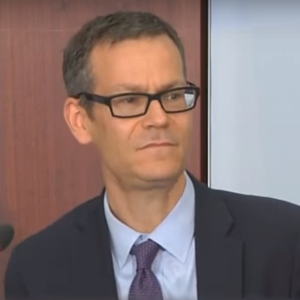When former President Donald Trump pulled out of the Iran nuclear deal forged by his predecessor, ex-Obama administration officials were brutal in their condemnation, few more so than Colin Kahl, a former national security adviser to then-Vice President Joe Biden. Kahl tweeted, “War drums already sounding.” For Kahl and others who negotiated the pact, there could be no better deal with Iran, concerns expressed were a pretext for military conflict, and a key Biden foreign policy goal should be to return to it as soon as possible. As to those who nursed concerns that Iran would use the deal to advance its nuclear program, support terrorism, and menace Israel, he might use a characteristic retort: Imbeciles and idiots.
As Biden executes on his promise to return to the Obama-Biden Iran nuclear deal, it’s worth rehearsing what was wrong with it in the first place. As critics (and even some Obama vets) have noted, one of the biggest problems with it is the so-called “sunsets” – the fact that most of the constraints on Iran’s malign behavior disappear within years. Indeed, an international arms embargo already has. Restrictions on missiles are due to evaporate in 2023, on advanced centrifuges in 2024, and many remaining restrictions in 2025.
Another complaint is that while Team Obama addressed the Iranian nuclear file, it ignored Iran’s support for terrorist groups like Hezbollah and Yemen’s Houthis, glossed over Iran’s efforts to destabilize the Middle East, and looked away from one of the region’s worst human rights abusers. And finally, there is the troubling fact that Iran used its cash windfall of hundreds of billions to continue to support terrorism and war.
Because of these problems with the original Iran deal, senior Biden officials have suggested they will seek an “Iran deal plus,” implying the United States won’t simply be game to go back to the status quo ante. The question is whether those officials, including Kahl – nominated to be Undersecretary of Defense for Policy – can be believed as they change their tune in order to secure confirmation by the Senate.
In his hearing before the Senate Armed Services Committee, a low-key Kahl allowed that perhaps he had been wrong to suggest all the U.S. funds transferred by the Obama administration to the Tehran regime would go “to butter” versus guns; he also insisted sanctions must remain in place until Iran returns to full compliance with the agreement. But there remains doubt in senators’ minds that a man who argued that hoping for a better Iran deal “is a dangerous delusion” actually has any interest in negotiating a better one. Doubts that the person who once insisted there is no hope to “force Iran to accept a better deal—one that eliminates the JCPOA’s sunset clauses, dismantles a significant portion of Iran’s ballistic missile arsenal, ends Iranian support for terrorism and regional militancy, and addresses the regime’s systematic violation of human rights at home” is really going to try to do just that.
Therein lies the Biden administration’s problem: Senior officials like Secretary of State Antony Blinken have sought to convince a skeptical Congress that the U.S. is “a long way” from a return to the Iran nuclear deal. But Biden’s choices tell another story. Kahl has enjoyed the most scrutiny, but former lead Iran negotiator Wendy Sherman – nominated to be deputy secretary of state – only underscores that what Team Biden says and what they intend to do are two different things. In her hearing, she told Senate Foreign Relations Committee members that the “facts on the ground have changed, the geopolitics of the region have changed, and the way forward must similarly change.” Four years ago, she said the exact opposite, noting that “there are many here in the United States who still believe that the deal should be ended. It’s never been clear to me what they think the alternative is.”
It’s only natural that a new president brings new policies. The real question is whether those policies will be—as advertised–truly new, or just the same failed ideas repackaged for a new day.
A longer version of this article originally appeared in The Dispatch.

